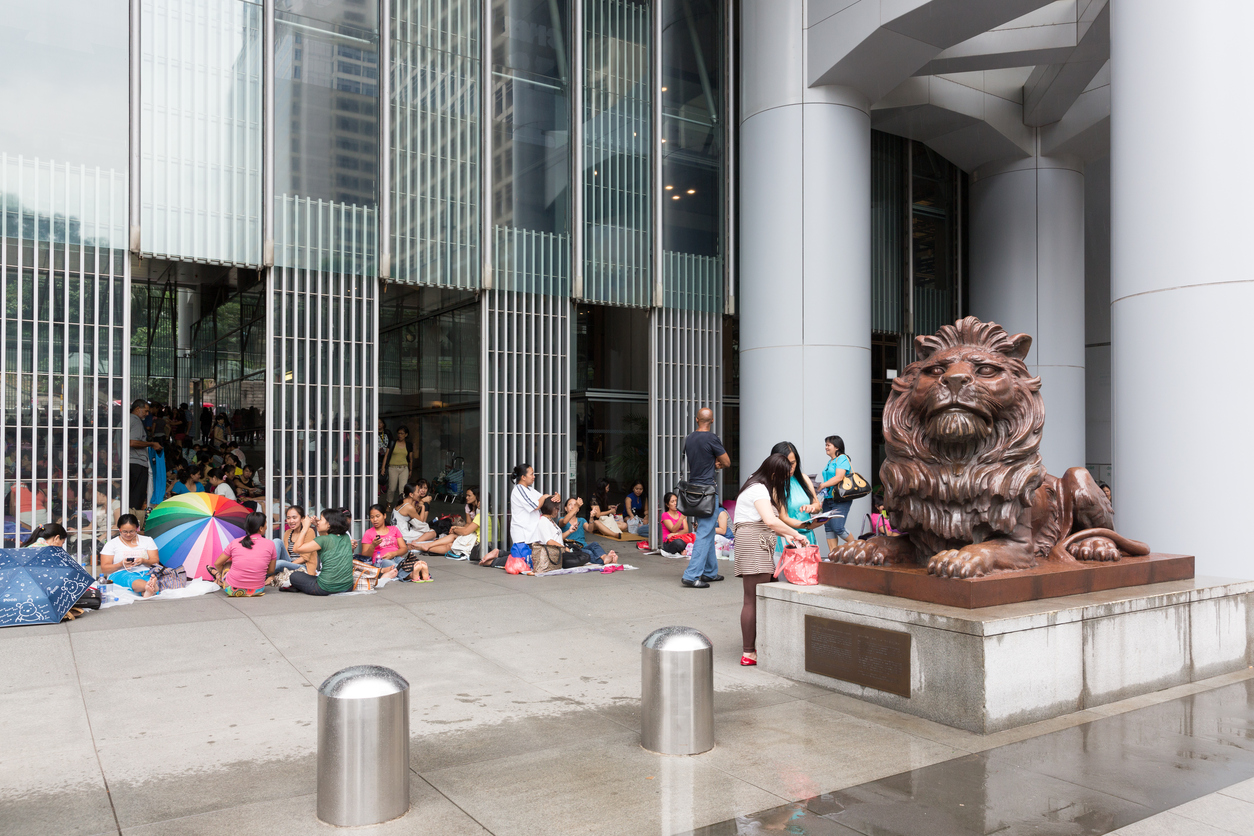As the Philippines and China try to mend ties over the prevailing Philippine-China territorial dispute in the West Philippine Sea, the Department of Labor and Employment (DOLE) reported that the latter is eyeing to hire more than 100,000 Filipino household workers (HSWs) in its five major cities.
On Friday, Labor Undersecretary Dominador Say said he has already met with representatives from the Chinese government to lay their cards on the table for the possibility of deploying Filipino HSWs to China’s five major cities, which include Beijing, Shanghai, and Xiamen.
“We talked about their plan to open China for Filipino household service workers…They said they are considering hiring 100,000 HSWs per month,” Say said in an interview.
Successful applicants may earn as much as P96,834 (Dh7,053) or a minimum fee of P27,823 (Dh2,026).
Further negotiations, he said, will happen in September this year.


Edge across the narrow ledge
Amid a looming labor shortage over the years, China remains reluctant to welcome “blue-collar” foreign workers. But English proficiency and international training of the Filipinos edge the way across the narrow ledge.
“They said they decided to approach us only now since there are now many Chinese families who could now afford to hire Filipino HSWs,” Say said.
According to South China Morning Post, Filipino HWSs have become a very marketable asset for employment agencies. “In Shanghai they can earn a 40,000 yuan (P300,179) commission when a client signs a three-year contract for a Filipino domestic helper. The salary is 7,000 yuan (P52,531) to 8,000 yuan (P60,026) a month, which even at the lower rate is close to double the HK$4,210 (P27,172) minimum domestic helper salary in Hong Kong,” the report said.
Clamor from the Chinese workforce


China’s burgeoning demand for Filipino HSWs, however, recently became hot under the collar of its citizens earning less. On social media platform Weibo for example, Chinese netizens clamor against the anticipated wage for Filipino maids, according to Supchina news portal.
One commenter was quoted saying, “Why can domestic workers from the Philippines obtain such a high salary while we normal Chinese only earn little per month?”
“Isn’t the country supposed to raise salaries for its citizens first and then import foreign workers?” another Weibo user said.
Some Chinese netizens also raise an outcry against illegal Filipino workers in China. Local reports said that as of last year (2016) an estimated 200,000 Filipino HSWs were serving in China without proper work permits, as per South China Morning Post.
With this number, it is reported that Filipinos comprises the top group of illegal workers on the mainland.
Highly-strung about the offer
On the mainland, illegal workers do not just face stiff fines once they are caught by the authorities. It also makes them vulnerable to abuse by employers.
A report published by Asia Times dated August 1, for instance, said that this illegal setup entangles many domestic workers in China to fall prey into the trap of exploitative work.
Despite many aspiring overseas Filipino workers lauding media reports about China opening its doors for them, others called the attention of the Philippine government to lobby policies on medical insurance and other protections for Filipino maids in China.
The Philippines is one of the world’s biggest exporters of labor, including domestic helpers, that keeps its economy afloat as they send over $2 billion (P100.87 billion) annually. And if China’s relaxing of ban on the employment of foreign maids were true, economic experts say it could be a win-win situation for the two countries. But for others who remain skeptical about the idea, this move could just be the tip of the iceberg; most of whose bulk lies under the waters of the West Philippine Sea.





